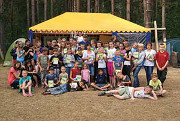Syria (GAIN/MNN) — From the Global Aid Network Blog comes a story that puts a human face to the Syrian refugee crisis:
Lillith* was living in Homs, Syria with her husband, three children, and parents. Lillith's husband had a good job in an industrial company, which provided enough money to care for their family and several older relatives in their neighborhood. In May, fighters stormed Lillith's village and started torturing and executing entire families. Lillith's husband feared for the safety of his family and relatives, and encouraged them to flee to northern Lebanon to escape the brutality.
After gathering the small amount of belongings they could reasonably carry, Lillith, her children, parents, relatives and some neighboring families started the journey toward safety. However, Lillith's husband stayed behind to engage in the fight, promising to join them later.
As Lillith's group and hundreds of other families tried to cross the border, fighters hiding in the bushes ambushed them. Lillith and her children watched in horror as people were executed by gunshot to the head or by having their throats slashed. Lillith and her family were able to escape, but several of her neighbors were captured and murdered as they tried to run.
When they crossed over the border, Lillith and her family found themselves not only navigating through the losses of their homes, jobs, and friends, but they had lost their legal status and identities overnight. Without housing, work, and no way to contact her husband to even know if he was still alive, Lillith is facing a dark reality filled with much pain, fear, and uncertainty.
Unfortunately, Lillith's story is not unique. Thousands of other Syrian men, women, and children have experienced horrendous death, violence, and loss in recent months. Prior to assessments completed by GAiN and its partners, only secular organizations and unorganized local efforts were addressing the situation.
The United Nations is reporting that over 1,000,000 people have fled the country. The United Nations High Commissioner for Refugees (UNHCR) also notes that roughly 40% of those refugees are children under 11 years old. 14% are between 12-17.
Over 300,000 registered refugees are living in the bordering nation of Jordan; however, the government estimates that the actual number is closer to 420,000. Hundreds more stream in every day. The Jordan government, the UN, and other organizations are trying to meet their needs, but as the crisis worsens, it is not enough. The UN High Commissioner for Refugees has warned that the "humanitarian response capacity is dangerously stretched."
There is a severe shortfall coming to the refugees because pledges made for emergency humanitarian aid aren't coming in. Together with predictions that the Syrian refugee crisis could triple by the end of the year, UN aid agencies are planning for food rationing and scaling back health programs.
The World Food Program (WFP) says it is spending $19 million a week to feed 2.5 million refugees inside Syria and a further 1.5 million who have fled to official camps in Jordan, Turkey, Lebanon and Iraq. By July, the WFP says, there is no guarantee that its work on the Syrian crisis can continue.
Meanwhile, GAiN USA has committed to ministering to and serving the Syrian refugees who have moved into neighboring countries, meeting both physical and emotional needs. By implementing a highly relational, holistic relief approach GAiN and its partners have been able to serve more effectively. And it is through this ministry of caring relationships that people are hearing the hope and receiving the ultimate healing, which leads us to the Compassionate Care Unit.
Focusing on women and children, Global Aid Network desires to address the emotional and social needs of those who are hurting. By implementing a highly relational approach to emotional and social care, GAiN's Compassionate Care Unit and its partners are the hands and feet of Jesus. Together, they want to train leaders and partners, on the field, to meet the emotional and social needs of their people in times of crisis.
$40 provides a Survival Pack: enough food to feed a family of five for one month. When people come alongside to provide food, their partners are there to also provide emotional and spiritual hope. Immediate financial aid will provide basic survival kits with food and water, 2 blankets, and medical supplies.
*Name changed for security reasons.

